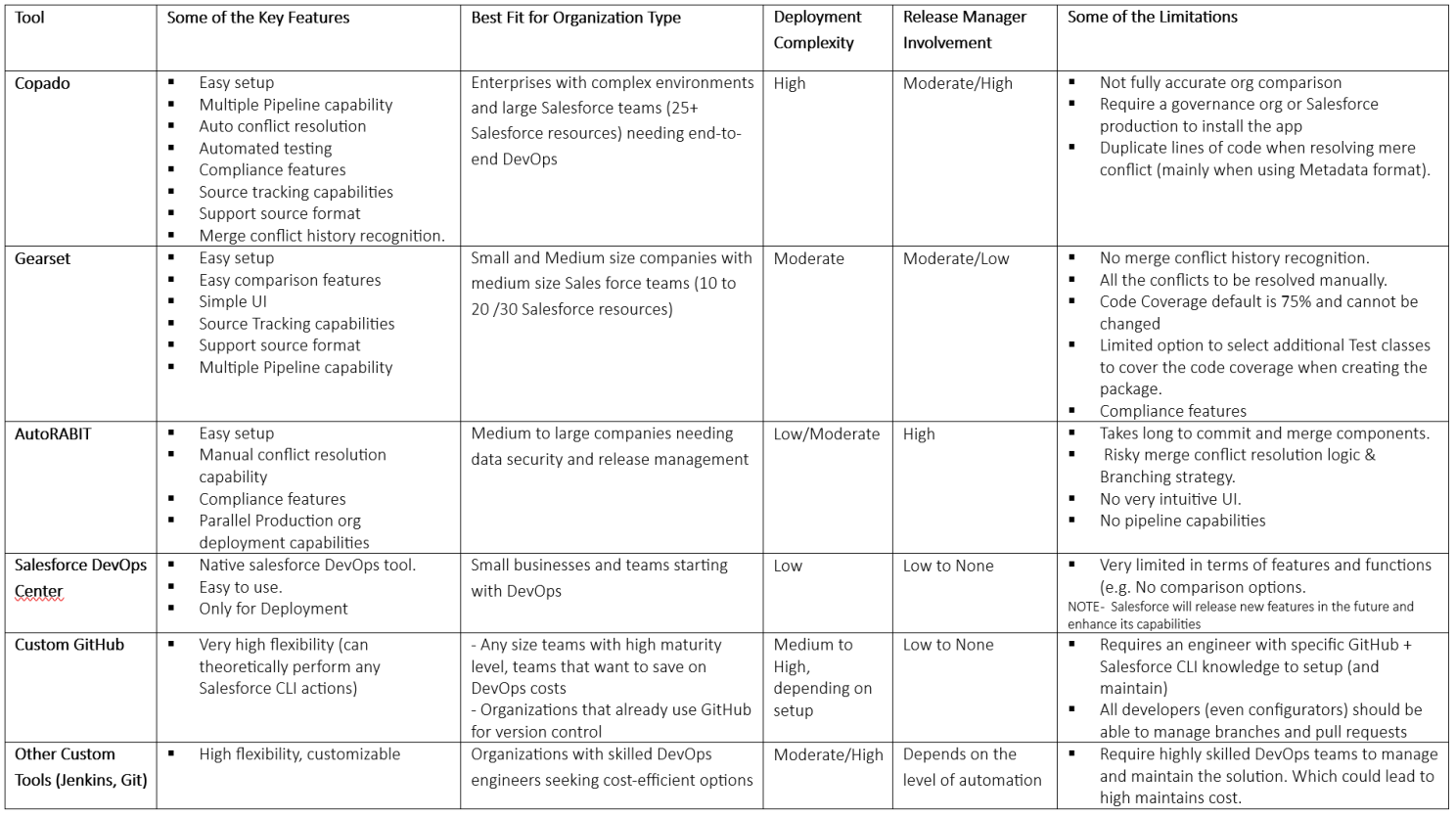
All Salesforce implementation teams are required to specialize not only in Salesforce itself, but also a plethora of other systems, technologies and methodologies, to be able to deliver a Salesforce product. We at https://cloudbus.digital do not shy away from diving headfirst into any topic that contributes to the quality of Salesforce development.
Today’s article is the second part in this short series. In the first article we looked at DevOps in general, and what it means in the Salesforce ecosystem. Today we will examine the tools that are available to automate DevOps processes!
By Mustafa Faqiri
Available DevOps Tools for Salesforce
The Salesforce DevOps ecosystem has expanded rapidly over recent years, with various tools available to fit different organizational needs. These tools help automate different parts of the development lifecycle, including source control, CI/CD (Continuous Integration and Continuous Delivery), testing, and release management.
- Copado: A leading Salesforce-native DevOps platform that focuses on providing an end-to-end solution for enterprises with complex environments. Copado is widely adopted for its powerful features such as deployment pipelines, Auto conflict resolution.
- Gearset: Known for its ease of use and comprehensive comparison and deployment features, Gearset is a popular choice among small to medium-sized enterprises (SMEs) and teams that need flexibility and a simple setup. Its intuitive interface helps teams quickly identify and manage changes across Salesforce environments.
- AutoRABIT: AutoRABIT is good for medium to large companies. It has limited automation possibilities and is highly dependent on a release manager.
- Salesforce DevOps Center: Salesforce’s own DevOps solution, ideal for teams starting their DevOps journey. It offers basic change tracking and deployment capabilities, helping small businesses and teams transition smoothly to a DevOps methodology.
- Custom Tools (e.g., Jenkins, Git, GitHub): Open-source tools like Jenkins and Git can be used for Salesforce DevOps, providing flexibility and cost efficiency. This is a great choice for teams that have experienced DevOps engineers who can configure and maintain custom solutions tailored to their organization’s specific needs. GitHub Actions can also be used to manage DevOps, and this is a very convenient option for organizations that already use GitHub for version control.
- Other tools in the market are Flosum, CircleCI, Azure DevOps. Some of these tools like Azure DevOps can be customised to fit organisational needs. Others like Flosum are native salesforce DevOps solution.
Tool Comparison and Fit for Organizations
In our comparison we have mainly focused on tools that we have used and tested within our team.
(For better readability, right click the table and select "open image in a new tab")

Choosing the Right Tool for Your Organization
When selecting a Salesforce DevOps tool, it's essential to consider factors like organization size, industry requirements, budget, and the complexity of the Salesforce environment. If you would like to know more about the capabilities of these tools and limitations, don't hesitate to reach out to us!

